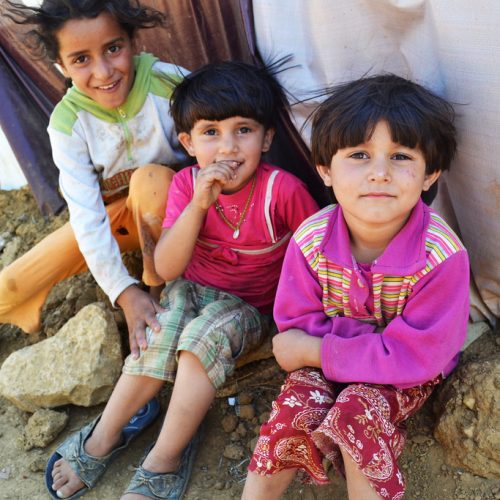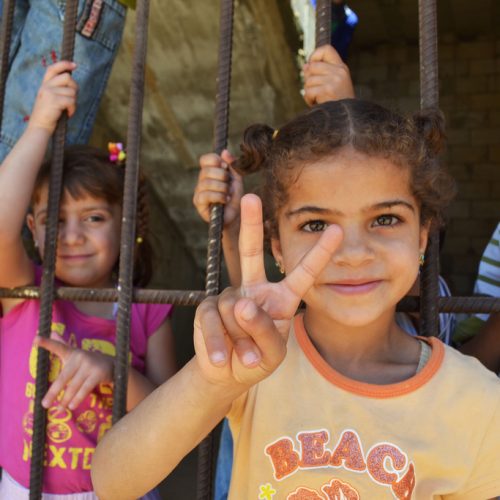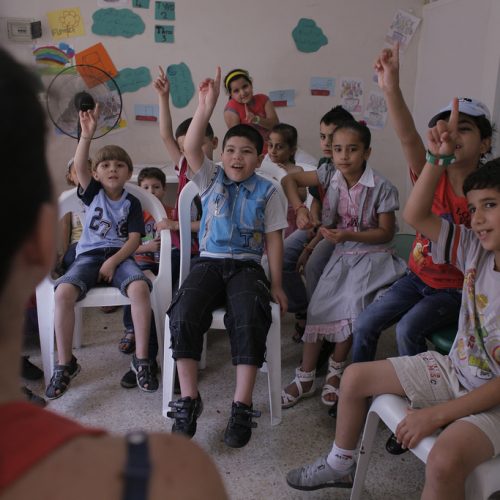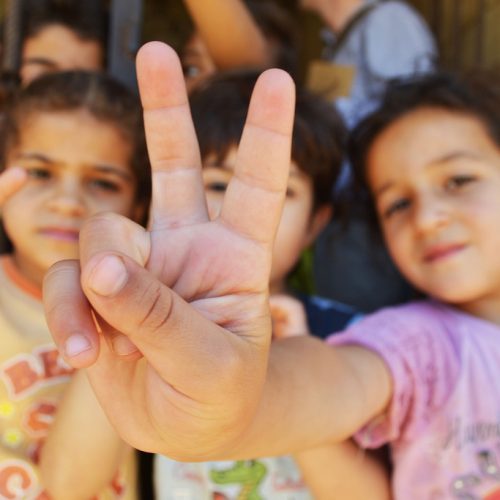Voices of Syrian future
Like most of his friends five year old Muaz has dreams: “I’d love to go to school. I’m jealous because my older brothers go to school and I don’t get to go. I’d like to learn the alphabet.”
Two-year-old Lillian said, “I like to sing and dance” while Abdullah, aged 6, hasn’t decided if he wants to be a footballer or a painter when he grows up – maybe both. “My favourite footballer is my older brother. When I grow up I want to be a footballer and painter.”
These are the voices of hope. Young Syrian refugees who are among 7 million people who are trying to build a future. “There’s nowhere sweeter than home,” said Kamila, sitting beside her severely disabled 17-year-old son, Mahmood, in a refugee camp in the Bekaa Valley in Lebanon.




